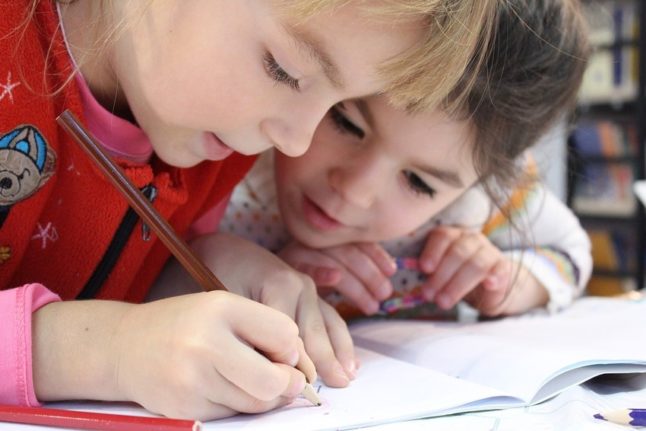King Charles III
The UK’s King Charles III is said to have a talent for languages, once famously giving a part of a speech in Welsh after having studied the language for only a few months.
He also put his oration skills to the test auf Deutsch in March 2023 when he visited Germany for the first time as King, awing audience members with good – even if not perfect – German that also wove in a handful of historical and cultural references.
READ ALSO: Just how well does Britain’s King Charles’ III speak German?
Mark Strong
Born to an Austrian mother and Italian father, and raised in the UK, actor Mark Strong’s movie career is as diverse as his upbringing. He’s been featured in films such as the fantasy Stardust to Sherlock Holmes. And going back to his roots, he even did the German voice over for Daniel Craig in the 1997 film Obsession.
Once with ambitions of becoming a lawyer, Strong briefly studied German Law at Ludwig Maximilian University of Munich before realising that acting was his gig.
Sandra Bullock
Hollywood legend Sandra Bullock has a German mother and spent 12 years growing up near Nuremberg where her father was in the US military. Despite years living in the US, she still speaks the language fluently, and has given several speeches all auf Deutsch, such as this acceptance speech at the Bambis, Germany’s equivalent of the Oscars. She’s told several interviewers that her native German is rusty, but we beg to differ.
READ ALSO: Sandra Bullock applying for German passport
Christoph Walz
With his perfect American accent, many film goers might not realise that the star is actually a dual Austrian and German passport holder. Able to master acting in both languages, Walz has been a regular in several Quentin Tarantino films, the most famous being Inglorious Bastards and Django Unchained. Born in Vienna, Walz carved out a roll for himself as a villain (often a German-speaking one) in a slew of American movies.
Tina Turner
A renown singer, dancer and actress, the very versatile US singer Tina Turner is known for many accomplishments over her decades-long career – but speaking German isn’t usually one of them. While not yet fluent in German, she’s been picking up several phrases since becoming a naturalised Swiss citizen in 2013 – and has been living with German husband Erwin Bach in a charming Chateau in the idyllic town of Küsnacht.
Kim Cattrall
How do you say “Oh yes!?” in German? The British-Canadian star of Sex In The City was actually born in Liverpool (not Germany), but spent much of the 1980s with her second husband in Frankfurt where she learned to speak German fluently – although now says she has forgotten much. The following video shows her mustering up a few phrases in Vienna back in 2008.
Arnold Schwarzenegger
OK we know that world famous actor-turned-politics enthusiast Arnie boats a thick accent, as famously flaunted in the line “Hasta la vista, Baby!” from the Terminator. But it’s rare to hear him actually speak his mother tongue of German Austrian.
Born in Thal, Austria, he’s lived in the US since 1968. However, videos such this one from a 2021 conference in Cologne show that he still can and does get his German out on occasion.
Honorable Mention: Renée Zellweger
Born in Texas, the Bridget Jones actress has a Swiss German father who originally hails from St. Galler Rheintal. In one Interview, she revealed how her father still holds on to his Heimat by being part of a Swiss Verein (association) in Florida, where he now lives.
Yet she regretted that he didn’t pass this heritage on to his offspring. “I never understood why my father didn’t teach it to my brother or I,” she said.



 Please whitelist us to continue reading.
Please whitelist us to continue reading.
Member comments